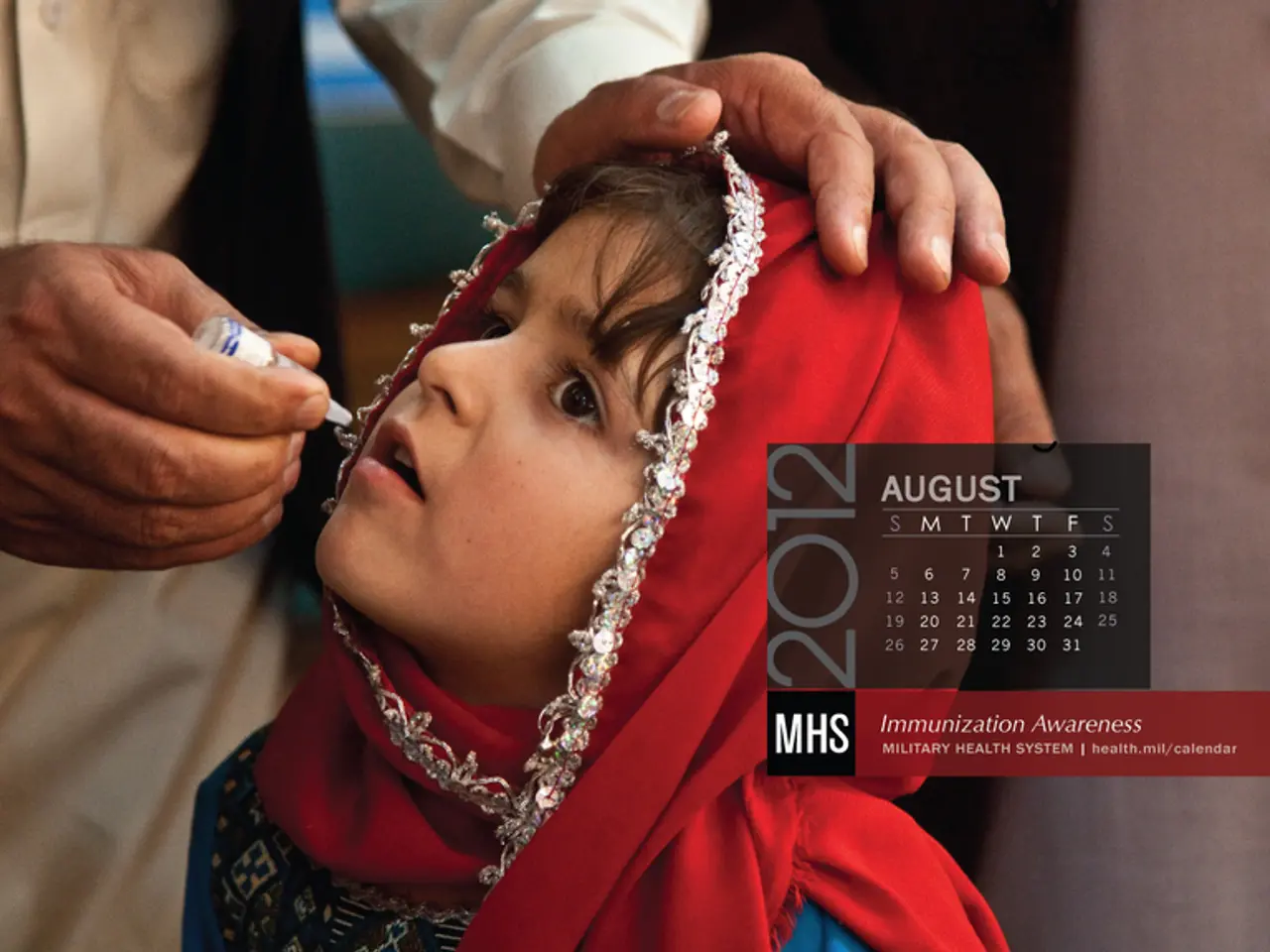Vaccination against measles is urged for travelers to Korea as imported cases increase
In the current year, Korea is grappling with a resurgence of measles cases, with extra caution urged for households with infants too young for vaccination, pregnant women, and those with weakened immune systems.
According to the Korea Disease Control and Prevention Agency (KDCA), 68 cases of measles have been confirmed as of August 9, 2024, marking a 45% rise compared to the previous year. This increase in domestic cases can be attributed to the influx of imported infections, primarily from Vietnam, South Africa, Uzbekistan, Thailand, Italy, and Mongolia.
The World Health Organization (WHO) reports that 360,000 measles cases were recorded globally in 2024, highlighting the ongoing threat of the disease. In an effort to combat this, the KDCA advises travelers to complete the two-dose measles, mumps, and rubella vaccine before traveling to measles-affected countries.
The COVID-19 pandemic has disrupted measles vaccinations due to a strain on the healthcare system and lockdowns. This, coupled with lower global vaccination rates, has contributed to the resurgence of measles. In 2023, the global rate of the second-dose measles vaccination was 74 percent, below the WHO-recommended 95 percent.
Adults make up the majority of measles cases in Korea, with 77.9% of patients aged 19 or older. Transmission of measles occurred in households and medical facilities with measles patients. Those who develop a fever or a rash within three weeks of returning to South Korea from a measles-affected country are advised to wear a mask, minimize contact with others, and inform medical authorities of recent travel before seeking care.
Measles outbreaks are still being observed in Europe, the Middle East, Africa, and Southeast Asia in 2024. The WHO and regional health authorities stress vaccination before traveling to affected regions, especially Southeast Asian countries where measles remains endemic or outbreaks persist. Sustained immunization efforts and surveillance are key strategies to eliminate measles and rubella globally.
In summary, the main sources of imported infections to Korea are Vietnam (most cases), South Africa, Uzbekistan, Thailand, Italy, and Mongolia. Global vaccination is crucial to prevent the importation and spread of measles by reducing overall transmission worldwide, thereby protecting both travelers and resident populations. Vaccination is recommended especially before travel to countries with ongoing outbreaks.
This highlights the interconnected nature of global measles control and the importance of comprehensive vaccination efforts both locally and internationally. The World Health Organization South-East Asia Regional Verification Commission is working towards eliminating measles and rubella by 2026. It is essential for all countries to prioritize vaccination programs to safeguard public health and combat the ongoing threat of measles.
Read also:
- Alcohol's Impact on the Gallbladder: Exploring the Relationship and Further Facts
- Identifying Lupus: The Various Blood Tests Your Doctor Might Request
- Surgical intervention using the TIF method: Details, anticipations, and further insights
- Persisting in the face of tax reductions and layoffs, these pharmacists demonstrate unyielding resolve.







